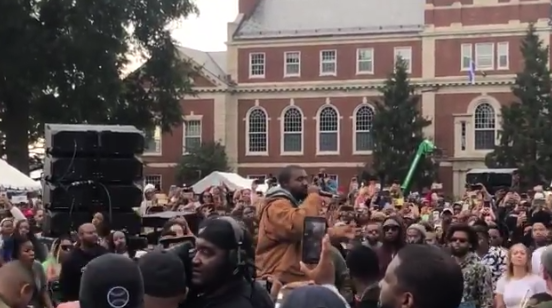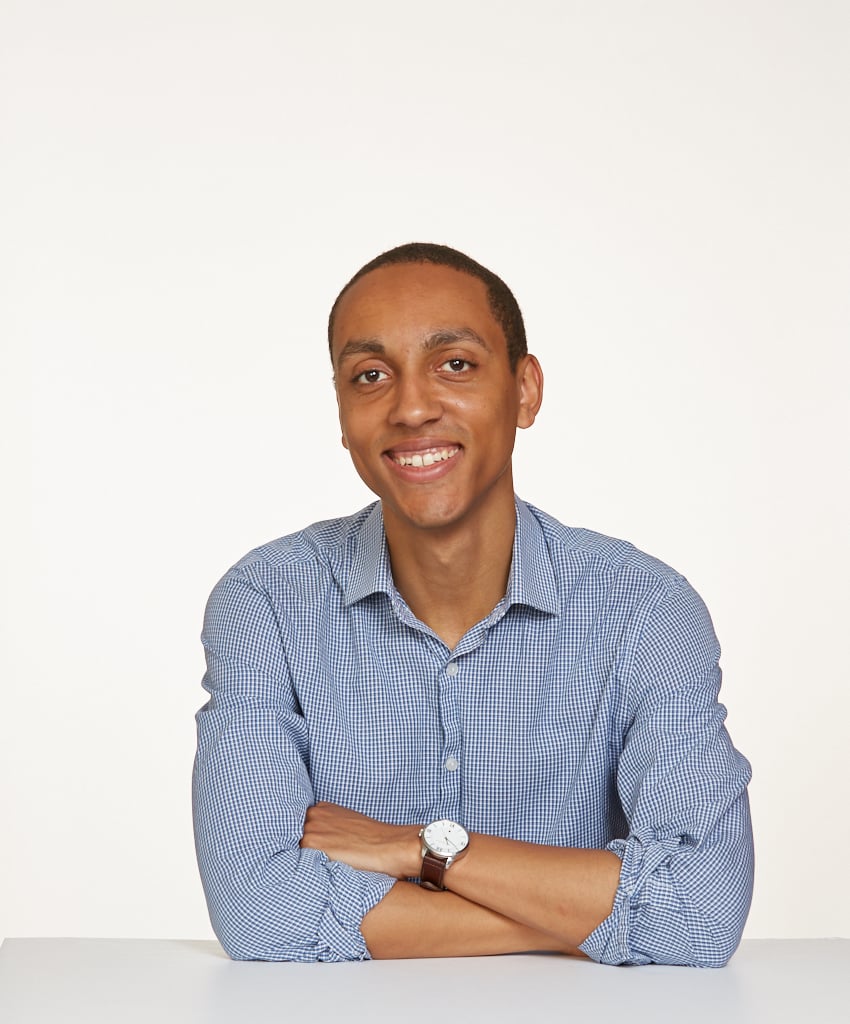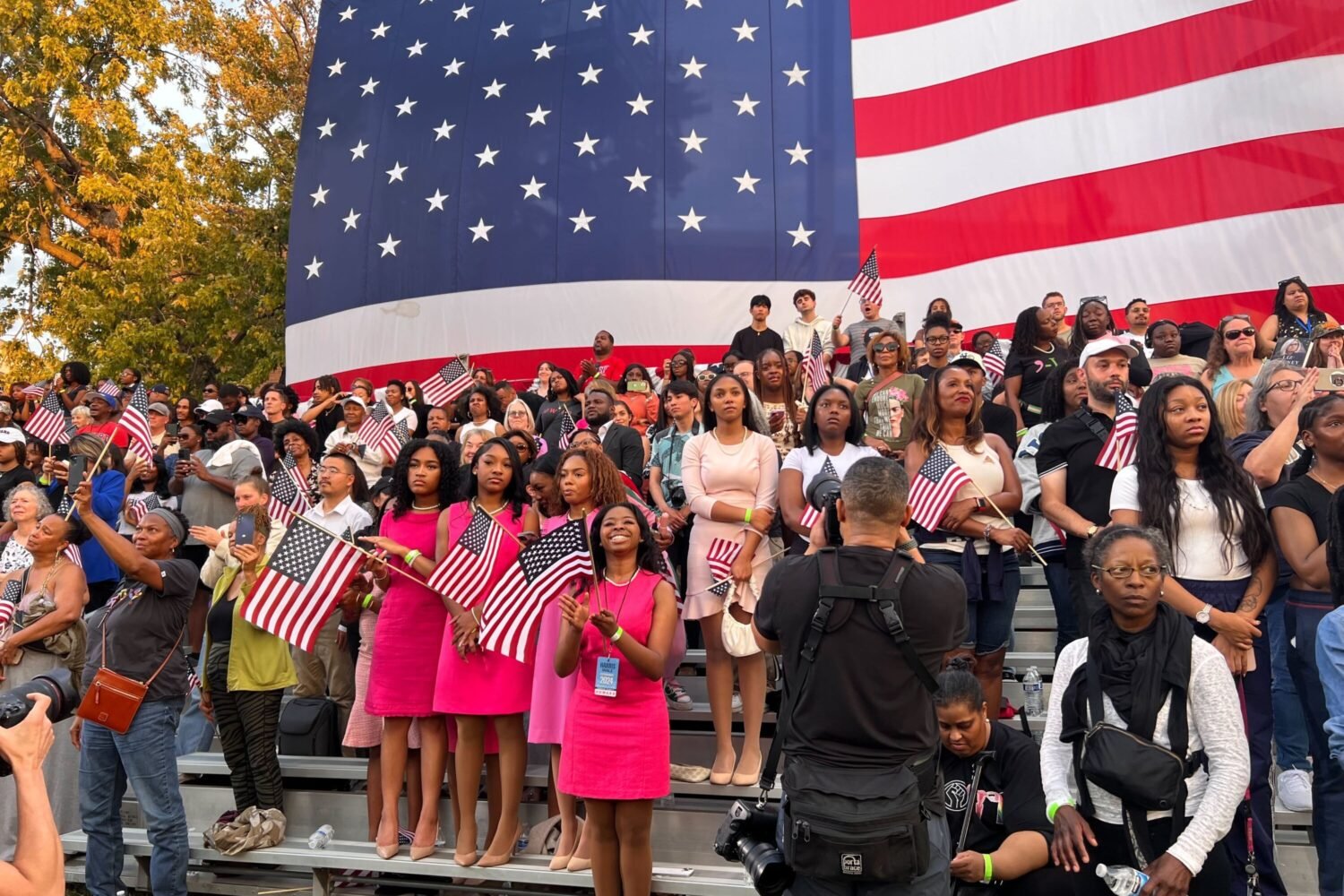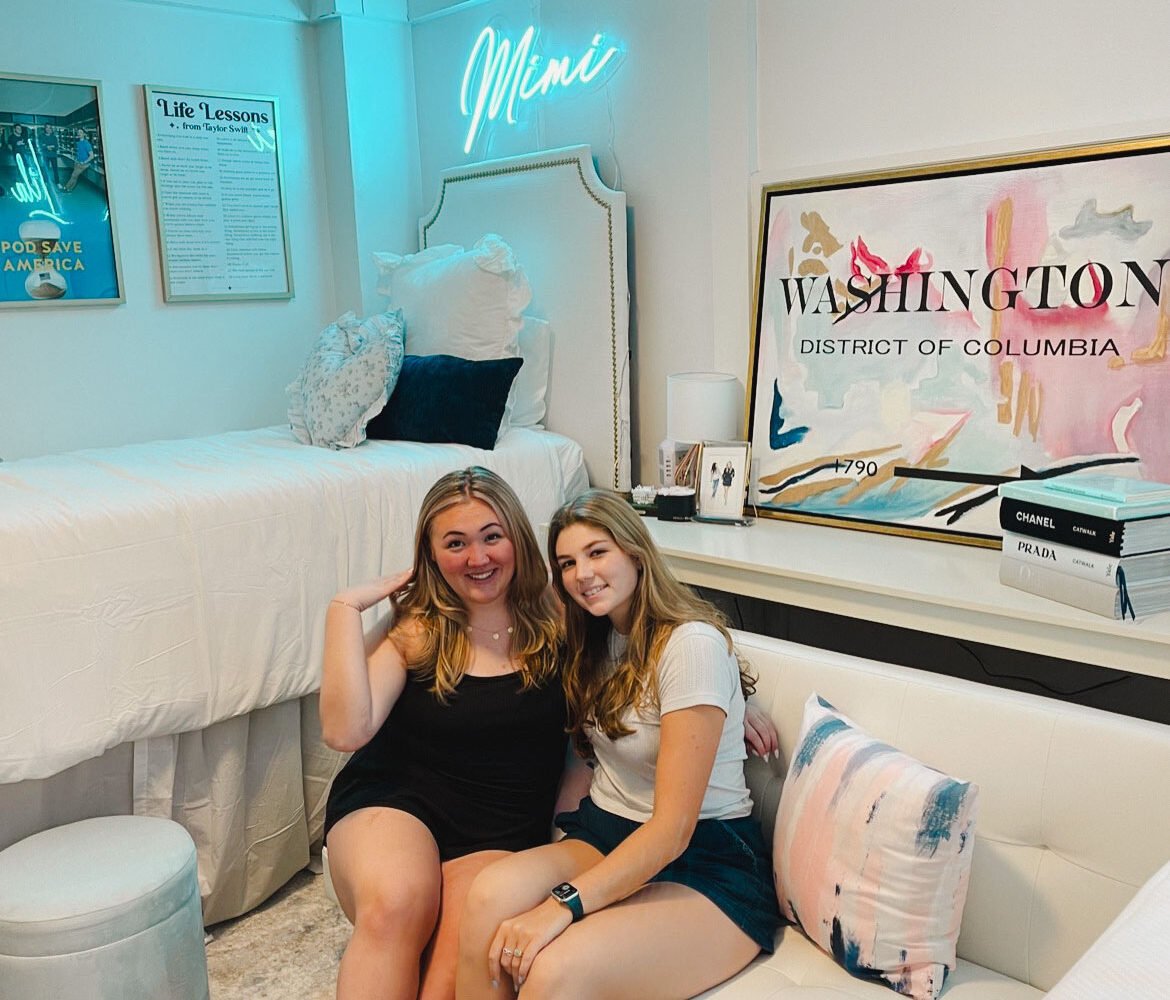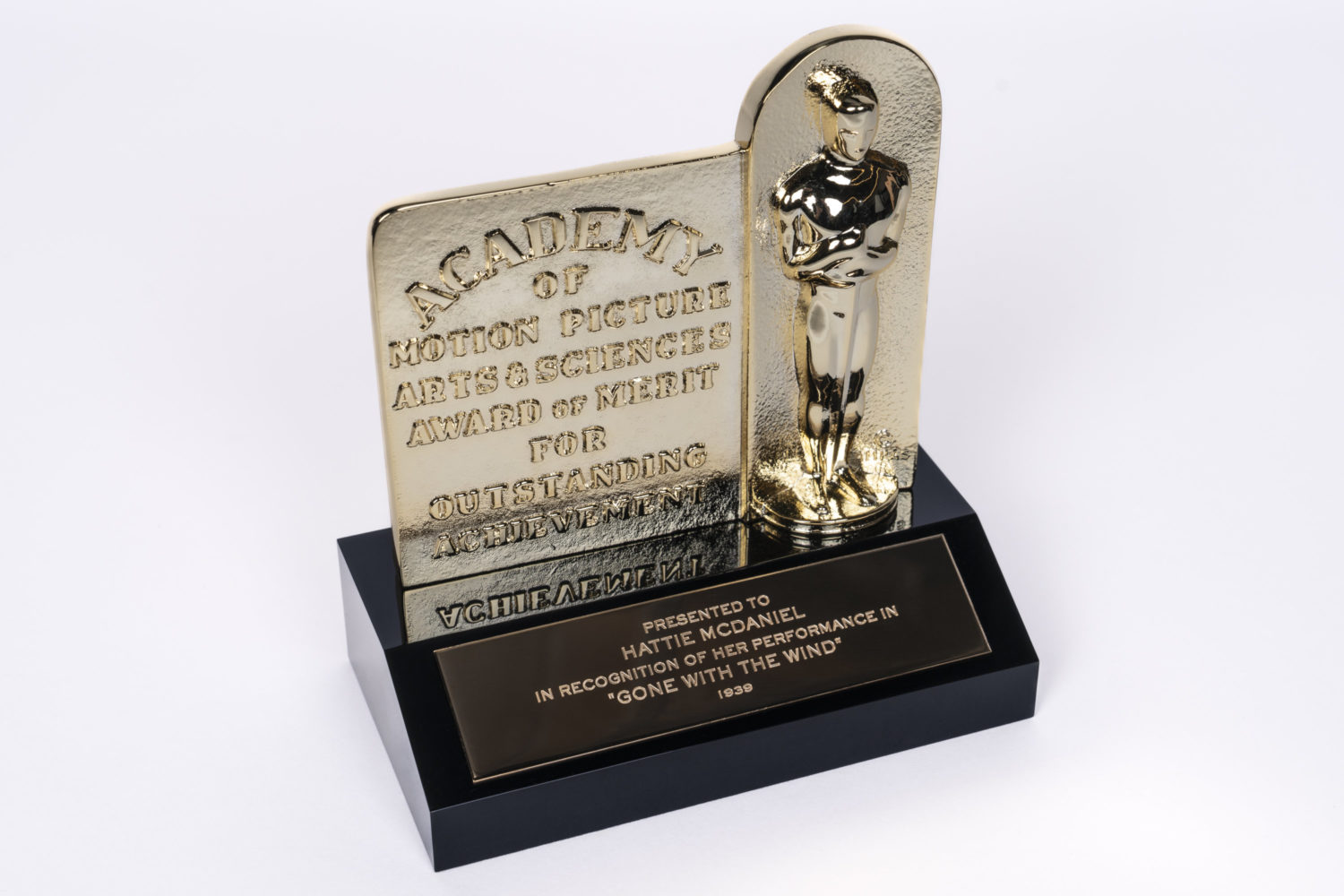Over the long weekend, Howard University students awoke to a 6 AM email announcing that Kanye West was on campus for its homecoming celebration. And although it was a Saturday, he brought his Sunday Service, a choral performance of his gospel-infused discography, to the Yard. He’s brought a similar service to varying locations since January—with celebrity appearances ranging from DMX to Brad Pitt to David Letterman.
Performing his timeless classic “Jesus Walks” from his album, The College Dropout, @kanyewest closes out “Sunday Service” for #HowardHomecoming . @PUSHA_T #HUHC19 pic.twitter.com/NqwEJU82mb
— Howard University (@HowardU) October 12, 2019
The Chicago rapper’s Sunday Services have taken a noticeably more spiritual direction of late—especially as he promotes his forthcoming album, reportedly titled Jesus Is King. Reactions to his Howard appearance on Twitter ranged from disgust to deeply inspired. Many cited West’s affiliation with President Trump as evidence of his “anti-blackness.” Why would one of the most esteemed historically black universities in the country invite him to perform on its hallowed ground?
While details on how the university connected with West are sparse (Howard’s administration declined to comment on the organization of the performance), students like freshman Mia Lawrence say that despite the controversial rapper’s image, the performance was beautiful.
“I would admit that, originally, I came because I’m like, ‘Oh my God, Kanye West is going to be here,’” says Andrews, a political science and journalism double major with a minor in African American studies. “But I realize that he was such a small part of it, and I kept realizing how happy I was, even if I couldn’t even see him.”
Andrews, who attended homecoming for the first time, says that while she isn’t technically Christian, she believes in “something more” and considers West’s Sunday Service to be a spiritual experience. “The music was a combination of gospel songs and contemporary music, or just his music, and it was so good,” she says. “The choir was so lively, and I had this moment where was like, ‘Wow, I feel so happy right now.’ And even if the event was controversial, I think that there’s value in that mindfulness moment of, ‘I am so happy right now.’”
West also used the space to share his social commentary, telling the crowd “I was canceled but now I’m in the middle of the Howard University Yard! Does that look like I’ve been canceled?” according to some who attended.
This is a snippet of what Kanye West was saying at Howard !!!!!!!!🗣 what they don’t want you to hear ❗️❗️❗️❗️❗️❗️❗️❗️❗️❗️#HU19 #HowardHomecoming #SundayService pic.twitter.com/T2CtBnxgDI
— ZAYLAW🦅 (@zaylaw_) October 13, 2019
Dr. Gregory Carr, chair of the Department of Afro-American Studies, found out about West’s visit as many did—through Twitter. There, he invited West to his office and cited Carter G. Woodson‘s 1933 book The Miseducation of the Negro.
If @kanyewest is indeed at #HowardU this morning, send him to the third floor of Founder's Library after he's done. I have some books for him.#TheMiseducationOfTheNegro
— Greg Carr (@AfricanaCarr) October 12, 2019
“As far as I’m concerned, Kanye West is not crazy. He’s not misled. He’s a very shrewd businessman,” Carr says. “If you’re gonna use a platform, you can do that at an auditorium, you can do that at GW later on Saturday night. But what you’re not gonna do is come to Howard University and not be engaged. It’s our responsibility as teachers, as faculty, as intellectuals at a historically black college, to use that as a moment. And that’s what I tried to do.”
Indeed, West did appear at George Washington University that evening, where he confirmed his conversion to Christianity and tentative album release date, October 25.
The library was closed, but Carr says he would have been happy to meet West at the Afro-American Studies office anyway. After all, Carr adds, West comes from a black studies lineage—his late mother, Dr. Donda West, started her teaching career as an English professor at Morris Brown College, an HBCU in Atlanta. “I knew that he wouldn’t respond because that would have been cross-purpose to his goal; and his only goal, of course, was marketing. He’s not interested in dialogue.”
West has entered a political battle, and it is a battle he is ill-equipped for, Carr says. West’s visit “could not go unremarked upon in a moment when the incendiary rhetoric in this country—white nationalism—has in some ways found a fig leaf in Kanye West.”
The reaction to West’s Sunday Service shows that there can be no unanimity in opinion on a college campus, and that the black experience is not a monolith. Indeed, Carr says a university like Howard is exactly the place where faculty and students should engage with difficult discussions like these.
“My first class is tomorrow morning at 8,” Carr said during homecoming. “And I expect that there will be a lot of discussion.”

